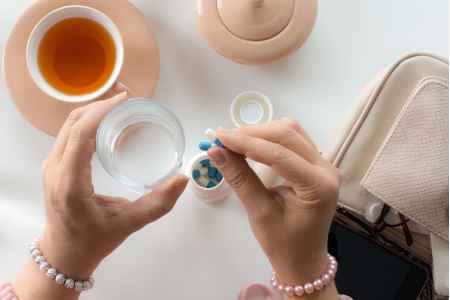
Are Incontinence Medications Effective? 2 Types and other Safe Alternatives
Safe alternatives to incontinence medications
There’s one basic rule when it comes to a flexible spending account (FSA): if you don’t use it, you’ll lose it. So as the year-end fundraisers rage and various causes compete for your donations, don’t miss your chance to use all your flexible spending account dollars. Here are some common questions to help brush up on how this account works, plus some unexpected ways to spend the funds.
Your employer may offer an FSA (also called a flexible spending arrangement) as part of a benefits package. This account usually is funded automatically from your paycheck and can be used to pay for certain approved health-related expenses. FSA dollars are deposited before taxes, pre-tax, reducing your taxable income. If you know you are going to spend money on health expenses, then this essentially saves you money.
At the beginning of each year, you determine how much you want to contribute to your FSA. Some employers may also contribute to FSAs, but the total annual amount cannot exceed the allowable limit. Each year, the federal government determines the maximum annual contribution allowed for an FSA.
To make a transaction, many FSAs supply you with a debit card to use for purchases and co-pays. Otherwise you can submit the receipts to your employer for reimbursement from your FSA. But avoid the hassle and choose the option that makes it easy (see below).
One of the perks of an FSA is that the annual amount is available immediately for approved costs. This means you don’t have to accrue the amount each month; however, if you change companies mid-year and have used all of your FSA funds, you may owe your former employer the difference. Similarly, if you leave your company, you forfeit any unused funds in the FSA because the employer owns the account.
Both of these accounts are pre-tax savings accounts that are ear-marked for medical expenses as defined by the IRS. There are a number of differences, but the largest one is that FSA is usually controlled by an employer and the HSA is controlled by the individual and usually can roll over at the end of the year. HSA plans have grown in popularity as health insurance costs have skyrocketed, more employers and individuals gravitated toward high-deductible health plans (HDHP). In 2024, HDHP meant a plan with a deductible of at least 1600 and 3200 dollars for individuals or families respectively.
In 2023, people with individual health insurance can save up to USD 3850 to an HSA, and people with family coverage can save up to USD 7750 ($4150 in 2024, and $8300 for family coverage limits).
Just as you would check on an insurance policy, always confirm ahead of time any irregular purchases you plan to make with your FSA funds. Sometimes you will need receipts, reimbursement submissions, and justifications.
* NEW!! With Elitone, We’ve teamed up with Sika Health to help you redeem your FSA/HSA funds for eligible Elitone purchases. Simply shop as normal then choose the Sika FSA-verified payment method at checkout. No receipts, no reimbursements, no hassle. They did the hard work for you!
There are so many practical ways to use your hard-earned dollars, so don’t let them go to waste!